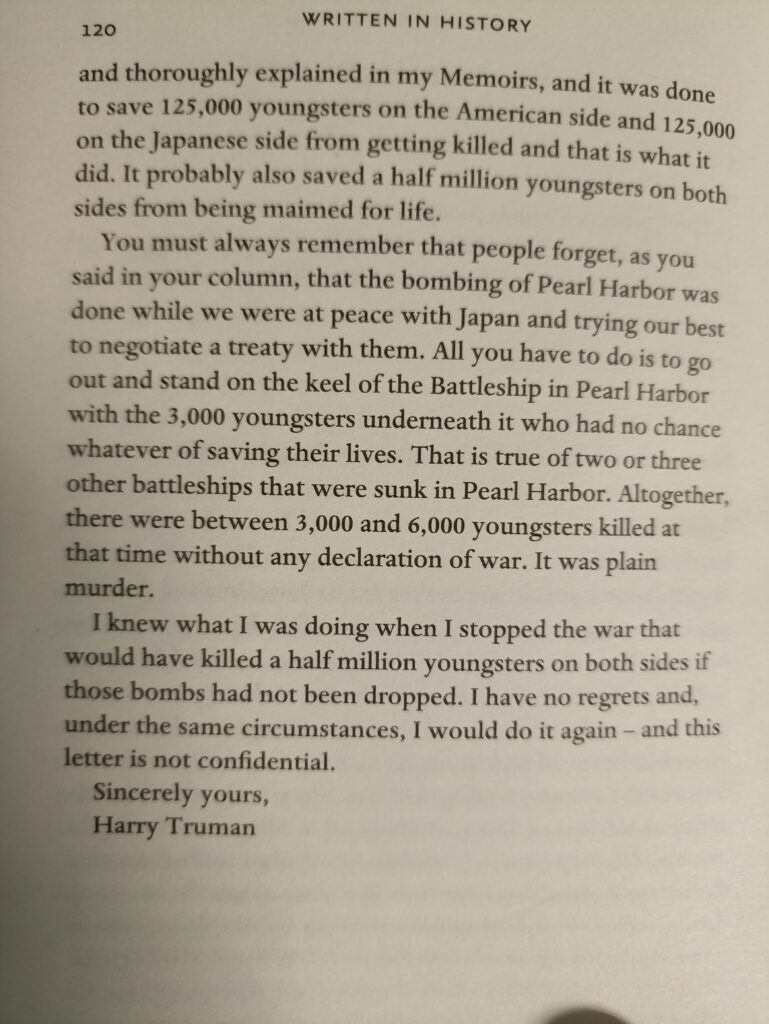The moment the bomb was dropped…
Guidance
When researching this topic, think about the following:
A. Was it right at the time of the war? Were there arguments for both sides in 1945?
B. Can you find quotes from the stakeholders from 1945? US President Truman, Chief of Staff George Marshall, Admiral Leahy, Colonel Tibbets and other military commanders. Did any of them change their minds after the event?
C. What evidence did the US government have to make their decision?
D. What are the conspiracy theories regarding this topic? Do they hold any weight?
E. Use you knowledge and understanding of OPVL and the Fake News unit when researching this topic. Think about the political stance of the source.
F. If you taking a specific view, aim to find out a counter argument, this will help you in the debate.
General Resources
Was the US justified in dropping atomic bombs on Hiroshima and Nagasaki during the Second World War?
DEBATE OVER HOW TO USE THE BOMB
12 Intense Pros and Cons of Dropping the Atomic Bomb
The following presentation is from the 2022 Grade 10 classes.
What does this show about the dropping of the atomic bomb on Japan? Enola Gay is the name of the aircraft that dropped the first bomb.


The Atomic Bombings of Hiroshima and Nagasaki
Arguments For
Truman Was Right to Drop the Atomic Bomb
- It would save American lives. The casualty estimate for invading the Japanese mainland was between 250 000 and up to one million soldiers. He defends this decision even thirty years later,

2. The Japanese committed many war crimes during the war. It was revenge for the Americans.
3. The Japanese government started the war, they should take the blame for any of the casualties.
4. The Japanese government were not going to surrender without the bomb being dropped, this was proven when the second destroyed Nagasaki. A UK professor explains this below on 28 October 2023.


5. It would save the lives of both Americans and Japanese. Do the ends justify the means?
6. President Truman would not survive politically if he chose not to use the bomb, the families of the future casualties would not forgive him if he did use a weapon that could have ended the war and saved their loved ones.
7. The USSR was just about to enter the war against Japan in August. It was likely that it would invade Japan and may not relinquish any influence of it afterwards. Soviet policy towards Japan – only part of the article available
8. Oppenheimer being interviewed in 1965.
Arguments against
- It was immoral, tens of thousands of civilians, who took no part in the decision to continue fighting the war, became victims.
- Japan was losing the war by August 1945, it would only take a few more months for the country to surrender.
Warfare in the Pacific
The Battle of Saipan in 1944 was an example of how difficult the fighting against the Japanese armed forces and removing them forcibly from the many islands in the Pacific. The US force had seven new and eight old battleships, fifteen large aircraft carriers, cruisers, destroyers and 71 000 troops. Against them stood up to 32 000 Japanese soldiers, which was 20 000 more than expected. The battle opened with a huge artillery barrage from the navy, aimed to break the defensive fortifications on the approaching beaches. However, this was not as effective as planned. Consequently, when the US forces reached the beaches, some units suffered thirty percent casualties. They proved very difficult to cross too as there was little protection or cover on the beaches.
The Japanese forces had been fed endless stories of how their enemy would rape, torture and kill anybody taken prisoner (it is important to note that all sides were fed propaganda during the war). So they fought to the death, ninety-seven percent of the Japanese dying defending Saipan.
How much this kind of battle influenced the decision to drop the Atomic weapons on Hiroshima and Nagasaki in 1945 continues to be a discussion today.
4. Did the US drop the bomb because of race? There is an argument that the US only dropped the atomic weapon on their perception of an inferior people. Memorial Days: the racial underpinnings of the Hiroshima and Nagasaki bombings
5. The US had spent up to $2 billion on the Manhattan Project. Did they have to justify it by using the bomb in 1945.
6. Although the weapon had been tested, the US did not know of all its consequences.
7. The Japanese civilians had not begun the war, why should they be the victims?
